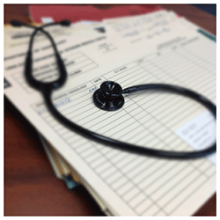Definitions:
- Intensive, inpatient experiences featuring primary patient care responsibility and direct reporting relationships with faculty and upper level residents. (It should be noted that appropriately designed emergency room rotations represent an exception to the inpatient requirement).
- 'Primary patient care responsibility' includes interacting with patients and their families, writing patient notes and orders, helping direct management plans and having the opportunity to perform procedures as appropriate.
General Guidelines:
- Students are required to do a minimum of two acting internships.
- Students are required to do one of the two acting internships at a clinical core site in Cleveland, unless specifically approved by their program.
- It is suggested that students focus their first AI experience on their matching specialty and are encouraged to defer the second AI to later in the fourth year. The required experience in Pediatrics, Internal Medicine, or Surgery could be accomplished at a later time if it does not correspond to the student's area of interest.
- Intensive care unit (ICU) rotations can qualify as AI's as long as they are participatory and not observational experiences. Services may want to consider requiring a ward AI as a prerequisite for an ICU AI rotation.
- Consult teams or observational experiences do not satisfy the criteria of acting internships.
- Acting internships must comply with ACGME duty hour requirements.
Learning Objectives:
- Student experiences should conform to the learning objectives for that service/discipline as they apply to the interns.
- The 'acting intern' is expected participate in all of the educational conferences attended by interns on the service. Patient care responsibilities take precedent over other medical school related programs (e.g. Friday medical student conferences, class meetings, etc.)
- Basic Learning Goals
- To learn and apply principles of a hospital based medical care system.
- To improve skills in physical examination and patient interviewing.
- To improve skills in differential diagnosis.
- To improve skills in formulating patient management plans.
- To demonstrate appropriate interactions with patients, families and other health care providers.
- To experience the role of primary physician for patients on a inpatient service (e.g. initial H&P, note and order writing, formulating and carrying out treatment plans, patient procedures, discharge planning and discharge summaries, etc.)


